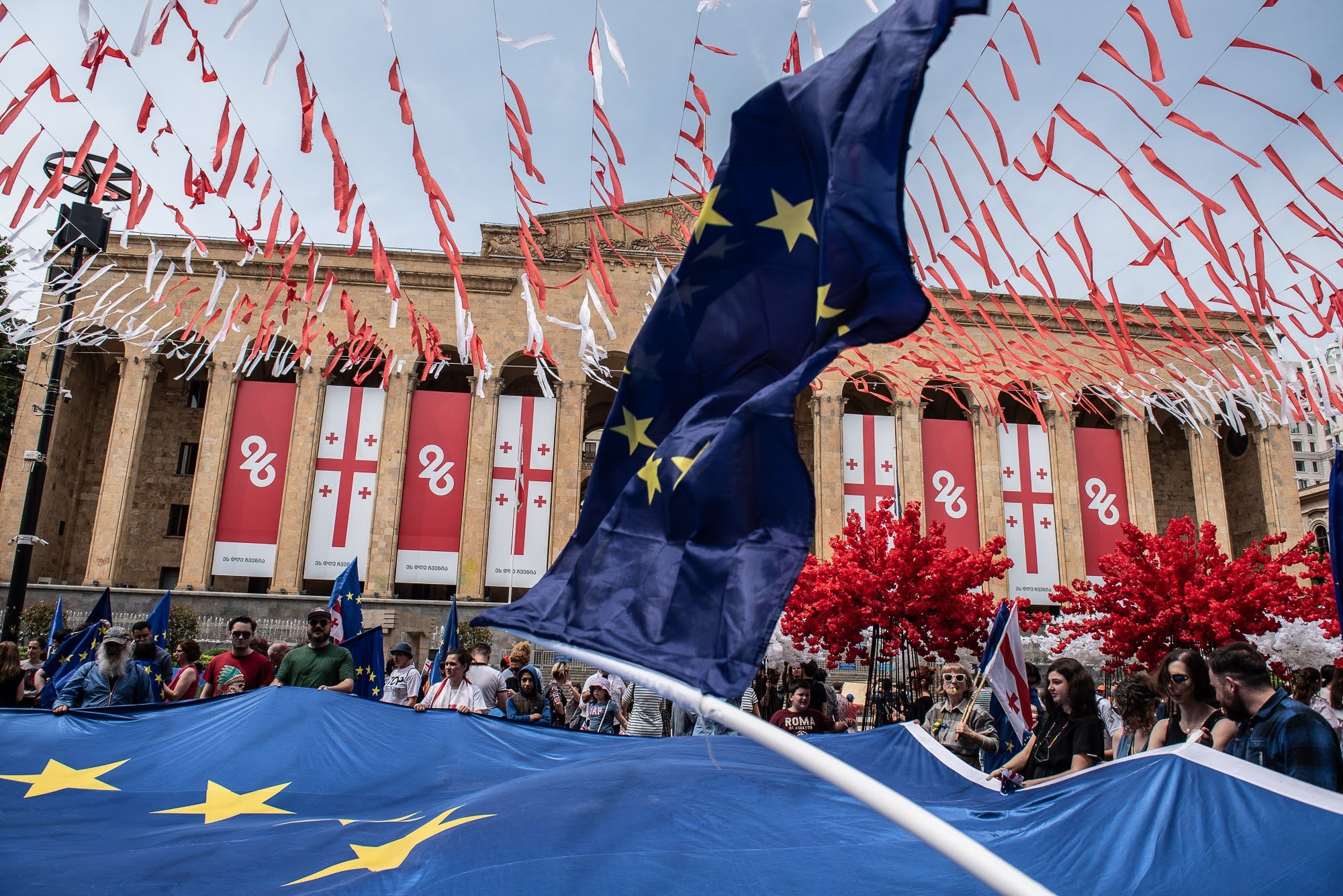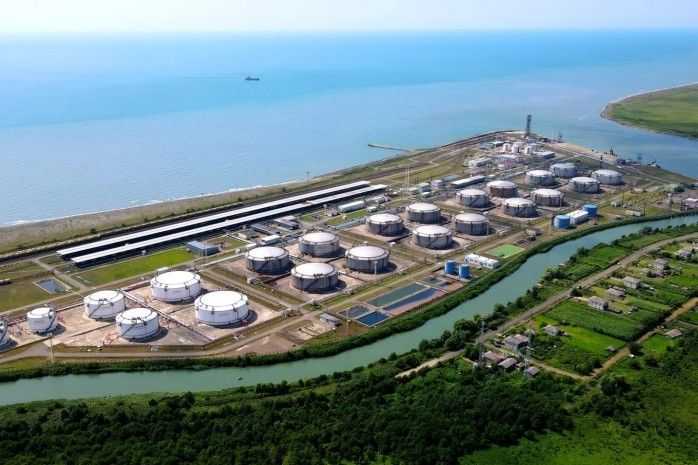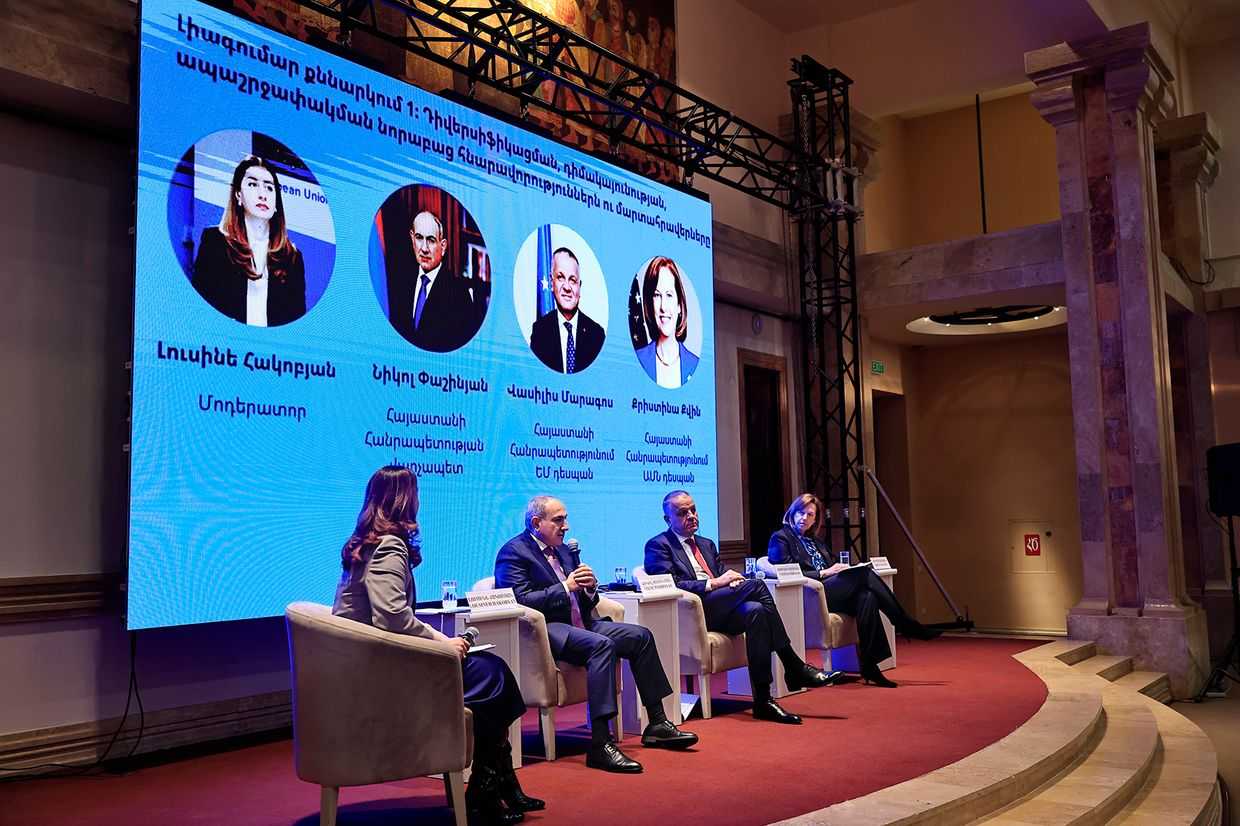
The European Commission has recommended that the EU grant Georgia candidate status, paving the way for the bloc to begin the country’s accession process at the EU Council meeting later in December.
Announcing the decision on Wednesday, the President of the Commission, Ursula von der Leyen, said the commission ‘fully supports the genuine aspirations of the overwhelming majority of [Georgia’s] citizens to join the EU’ but that ‘these aspirations need to be better mirrored by the authorities’.
If the EU Council follows the recommendation, as expected, it would be a reversal of the bloc’s previous decision almost 17 months ago to deny Georgia candidate status while granting it to Ukraine and Moldova.
The two countries applied for membership in the wake of Russia’s full-scale invasion of Ukraine, with the Georgian government reluctantly following suit after facing public pressure to do so. On Wednesday, the commission also recommended opening accession talks with Ukraine and Moldova, which would keep them one step ahead of Georgia in joining the bloc.
In place of membership candidacy, the EU gave the Georgian Government 12 ‘priorities’ to fulfil before its candidacy would be reconsidered.
Wednesday’s recommendation comes despite local civil society groups insisting that the government had failed to address most of the requested reforms, including ‘de-oligarchisation’, judicial reforms, and improving the freedom of the press.
Announcing the decision, von der Leyen said they were recommending Georgian candidacy ‘on the understanding that the government takes important reform steps’.
She called on the government to ‘engage more with the opposition and civil society on matters of national interest.’
She also praised what she said were ‘a number of positive steps’ taken by the government including an ‘action plan for de-oligarchisation’.
Georgian Prime Minister Irakli Gharibashvili thanked the Commission for recommending what he said was the ‘well-deserved’ candidate status for Georgia.
President Salome Zurabishvili, who has grown increasingly at odds with the government, especially over relations with the EU, said she would ‘rejoice with the people of Georgia’.
‘As President, I will continue more than ever to play my role as a pro-European leader to facilitate and push the still needed reforms’, she added.
Nine steps to be taken
In a follow-up document released later on Wednesday, the European Commission reiterated the assessment of EU Foreign Affairs Representative Josep Borrell that Georgia had delivered on only three of the twelve ‘priorities’ for candidate status.
The latest report outlined nine areas where Georgia’s progress is expected, including many areas left unaddressed from the previous ‘priorities’.
These included addressing ‘political polarisation’, assuring free and fair elections — ‘notably in 2024’, electoral and judicial reforms, combating corruption, ‘de-oligarchisation’, and protecting vulnerable groups, media professionals, and civil society activists.
It also included explicit references to ensuring the institutional independence of Georgia’s Election Administration, National Bank, and Communications Commission, as well as conducting inclusive reforms of the Chief Prosecutor’s Office and High Council of Justice.
The independence of all those state bodies from the ruling party has increasingly been questioned; earlier this autumn, the National Bank introduced a legal exception to shield a controversial former official from US sanctions after the government jumped to his defence. The leadership of the High Council of Justice, a supervisory body of Georgia’s judicial system, still includes officials also recently sanctioned by the US over corruption allegations.
Concerns over Georgian Dream’s grip on constitutionally independent institutions have grown further as the parliament, the Chief Prosecutor’s Office, and Georgia’s State Security Service have made no publicly known progress in probing claims of abuse of power and corruption.
Georgian Dream had also introduced a draft law against ‘oligarchy’ but shelved it after accusations that it was designed to protect party founder Bidzina Ivanishivli and target his political critics instead.
The updated priority areas set by the European Commission for Georgia also included new additions — such as combatting ‘anti-EU disinformation’ and bringing Georgia in line with EU foreign and security policy.
The final decision on Georgia’s membership candidacy is expected to be adopted at the 14–15 December EU summit.
‘Condolences’ to Georgian Dream
Despite the EU praising ‘limited progress’ by the Georgian Government towards membership criteria, opposition parties and civil society in Georgia have almost unanimously claimed the opposite.
The chair of the United National Movement (UNM), Levan Khabeishvili, said the recommendation came ‘despite [Georgian Dream’s] sabotage’.
‘The unshakable will of the Georgian people and Europe’s desire to prevent Georgia from becoming a Russian province won the first round’, he said.
Badri Japaridze, co-founder of the opposition Lelo group, went as far as offering his ‘condolences’ to Georgian Dream, whom he suggested had attempted to ‘sabotage’ the process instead of implementing the recommended reforms.
In the run-up to the decision, the leaders of European Georgia and the Labour Party, two relatively minor opposition groups, suggested that the EU’s decision to grant Georgia candidate status this year would strengthen the ruling party’s hold on the country ahead of next year’s elections, and thus set back the prospects for EU membership.
There have been widespread accusations from the opposition that the government was actively undermining the country’s EU membership bid, as government critics cited measures introduced by the government curbing civil liberties in the country.
In March, the ruling party attempted to pass a bill that would label media and civil society organisations that receive money from abroad ‘agents of foreign influence’.
The bill spurred the largest street demonstrations in Tbilisi since the pro-EU rallies in June 2022, eventually forcing Georgian Dream to drop the law.
However, the ruling party has since continued to escalate its criticism of opposition groups, local civil society organisations, the EU, and the US.
It has also introduced other controversial measures, including a new anti-protest law passed in October.









